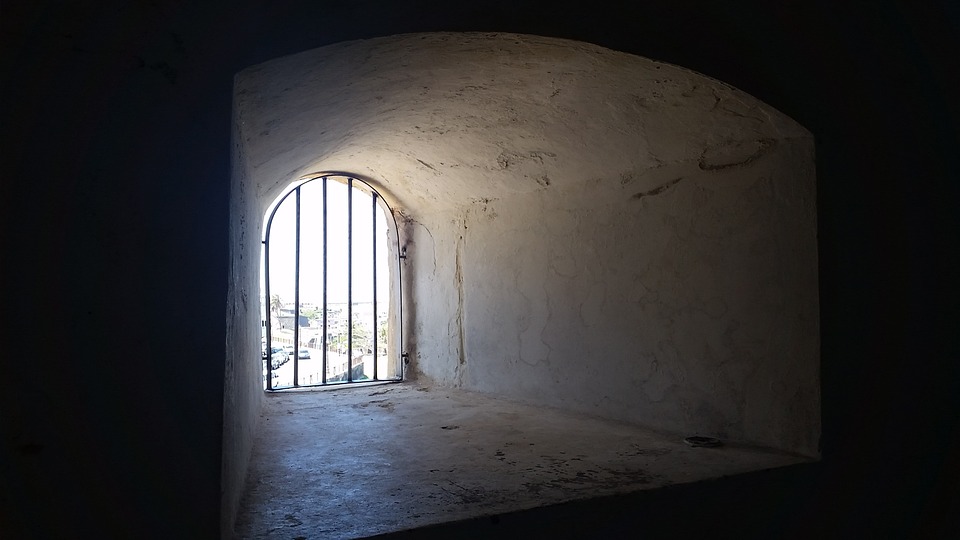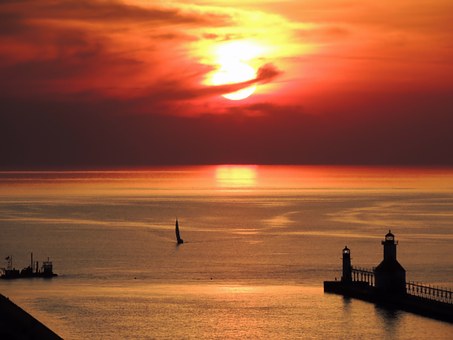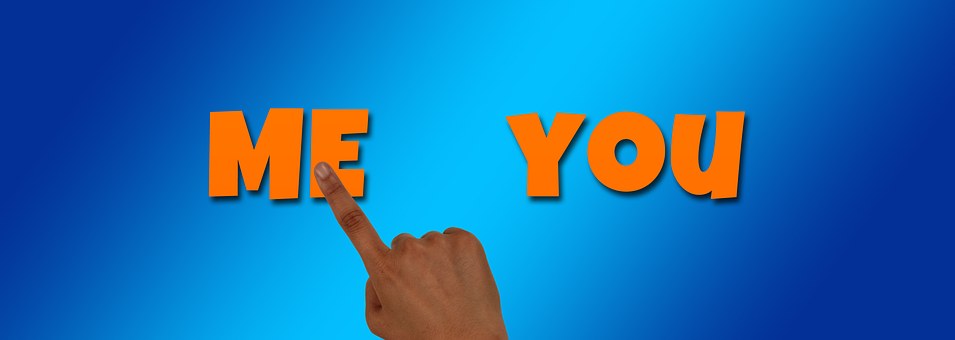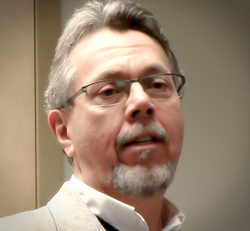 As I contemplate the vitriol, anger and violence that is foisted upon us during this Presidential Campaign, I need to make sense of it in my own heart and mind. What is driving a significant portion of the American population to turn their backs on the values that built this country such as inclusion, tolerance, and embracing community? How did we fall this far? It is too easy and a bit demeaning to say that uneducated people are being manipulated by a glib talking politician in order to garner votes. I feel there is something deeper going on. I believe that people are frightened and their sense of security has been eroded. Jobs have been lost. Incomes have been slashed and the community has been divided. In some sense – people may feel as if they are faced with the “prisoner’s dilemma”. The prisoner’s dilemma is when the police arrest two suspects for a crime and put them into separate interrogation rooms. The police tell each that the first to confess will get the best deal. In essence the suspects are encouraged to turn on their friend in order to make it better for themselves. Isn’t that what we are seeing? People are told to turn on “them” – immigrants, Muslims, protesters – in order to protect themselves. This false choice of the prisoner’s dilemma far predates the recent political campaign season. There are three charts that vividly display what may be driving this sense of insecurity. The first is from a recent Brookings Metropolitan Policy Program briefing. Here it shows a precipitous drop in good paying manufacturing jobs in the United States with a steep decline occurring since the year 2000. The second chart - also recent - is from the Wisconsin Budget Project. Here, we see that 89% of the new jobs generated between 2010 and 2013 in Wisconsin were in very low paying positions; those earning under $10.00 an hour. In order to understand the prisoner’s dilemma we have to link the two charts. In simple terms – we are losing well paying jobs and in return, the majority of jobs we are creating are low wage. This fact is brought home by another chart from the Wisconsin Budget Project showing that the majority of people living in povert are working. A Quaker friend of mine recently stated that “great anger comes from great pain.” I believe what we are seeing in America today is more of people speaking out of their pain and fear than anything else. Here’s an idea. Instead of preying on this fear why don’t we simply try to heal the pain and address the reason for the fear? I just got back from an eco-tour of Costa Rica where I learned that in 1948, this country eliminated its military and used the money saved to provide education and health services for all citizens. The results are pretty remarkable. The CIA World Fact Book says that “Costa Rica has made tremendous progress toward achieving its goal of providing universal access to education, healthcare, clean water, sanitation, and electricity”. Their adult literacy rate of 98% far and exceeds that of the USA where 14% of citizens can’t read. And, their life expectancy is about on par with ours. So what would happen if we began to spend our money on alleviating the source of pain and anger in America? Would our political discourse be different if we were subsidizing low wage jobs or increasing the minimum wage? Would we be afraid of the “others” if we felt that our children were getting a good education and could afford college or career training? If the cost of food, childcare, housing and healthcare didn’t take such a big bite out of our paychecks, would we be a more tolerant society? These are all political decisions we make on our priorities as a people. Right now we are spending $600 billion on the military and $47 billion on incarceration (state and federal combined). The country we want to be starts with each of us becoming the person we want to be. Am I content to be a prisoner of my own fear or am I willing to listen to those who are not like me and to support those public officials that support the common good and who do not advance their personal agenda by dividing us as a people. We can take our cue from Thomas Merton – a Catholic monk who said that the essence of the universe is “mercy, within mercy, within mercy”. If we start with mercy – for ourselves and for others – I don’t think we can go too far wrong as a country.
0 Comments
 I can no more describe the yearning for the soft whisper of God’s call than I can describe the pull of the sea to a land locked lover. Both are deep and persistent. Both are felt more than heard and both are primordial. The call of the sea can be frightful and wild. I am an avid sailor. I race sailboats on the inland sea most know as Lake Michigan. I’ve crossed the lake many times and have seen enough to know that if you don’t respect the lake she will find a way to rise up and splash cold water in your face; to wake you up to the dangers that abound when sailing on such a capricious sea. There is the wind sometimes burning my face red and the wash of the waves over the bow of my so small boat as she plows ahead. It is the fresh fish smell and the sparkle of the sun on the water as I seek passage to unseen shores. It is the numberless stars of the Milky Way visible in the middle of the lake on a cloudless night. It is the delicate butterfly that comes from who knows where and lands on your boat to rest and to ride across the lake with you. But for me, the call of God is not so wild and nearly never so clear. In fact, it is not so much a call as a yearning. The Quakers call it a Leading. It is nearly imperceptible but yet powerful in its persistence. And, most often for me, the call is so soft that I wonder if this is God beckoning me forward or my own ego butting in the way. Because God’s voice is so soft and too often my own voice is so loud – I often want to wait. I want to be clear that God is calling before I move on. I want to see and feel the wind of God on my face before I lift anchor and sail on. Sometimes, I feel like I am the land locked lover and God is calling me out to sea. It is a call that challenges my comprehension. But I have come to learn that if I wait until I am certain, I will never act. I have come to understand that if I think God is calling, then I must answer. The Quakers teach that if it is God calling, the “way will open” and things will pretty much work out. It is like riding in a storm on the lake. You have to trust your instincts and trust your boat. And trust God. The wind is blowing. God is calling. Now is the time to Lift anchor. Epilogue: A friend of mine told me that nightly, she tries to write a 17 syllable Haiku to describe her day. Following her lead, I try to hone the message I glean from my daily meditation, prayer and journaling down to 17 syllables. The above is one. I had just hung up the phone having said yes to taking yet another high profile job in a high risk environment. I had just agreed to be the founding director of a city-wide education project called Milwaukee Succeeds. Anyone who knows education in Milwaukee knows that the politics around this topic - in this city - is a blood sport. Parents here have more education options than nearly anywhere else in the country. The competition for students between the public schools, the charter schools and the 27,000 student base voucher schools is intense. And people are usually asked to choose between public education or supporting other options such as voucher or charter schools. But Milwaukee Succeeds aspires to be something different. The intent is to bring all parties to the table and focus on the kids. There is a Who’s – Who of leaders sitting around the table and literally hundreds of nonprofit organizations wondering what this new entity means for them. And I was about to step right into the middle of it all. So – given the environment I was about to walk into – I prayed a long time before I said yes. And I was pretty convinced that taking this job was as much a calling as it was a job offer. But something strange happened when I accepted this job. I had an intense bout of “buyer’s remorse.” I had this panicky feeling that I had made a bad decision. I worried that I may have just taken on more than I could handle. I sagged down to the couch and began to pray. Hard. My prayer went something like this: I’m not doubting you, Lord – it’s me that I doubt. I’m not so sure I’m up for this. I’m not so sure it’s right for me. And then I heard it. It was clear and unmistakable. As the Quakers are fond of saying it is that “still small voice.” I prayed to God saying that It is not you I doubt God – it is me. And the answer? The clear – small voice – certain it is God answer was this: “It’s not about you. It’s about me.” I had to laugh at the humor of God; taking my words and twisting them back on me in such a way that I knew things would be fine. Not to say they wouldn’t be hard – but that they would be fine. After all – It wasn’t about me anymore. |
AuthorMichael Soika has been a community activist for more than 30 years working on issues of social and economic justice. His work for justice is anchored by his spiritual formation first as a Catholic and now as a Quaker. Archives
June 2018
Categories |



 RSS Feed
RSS Feed